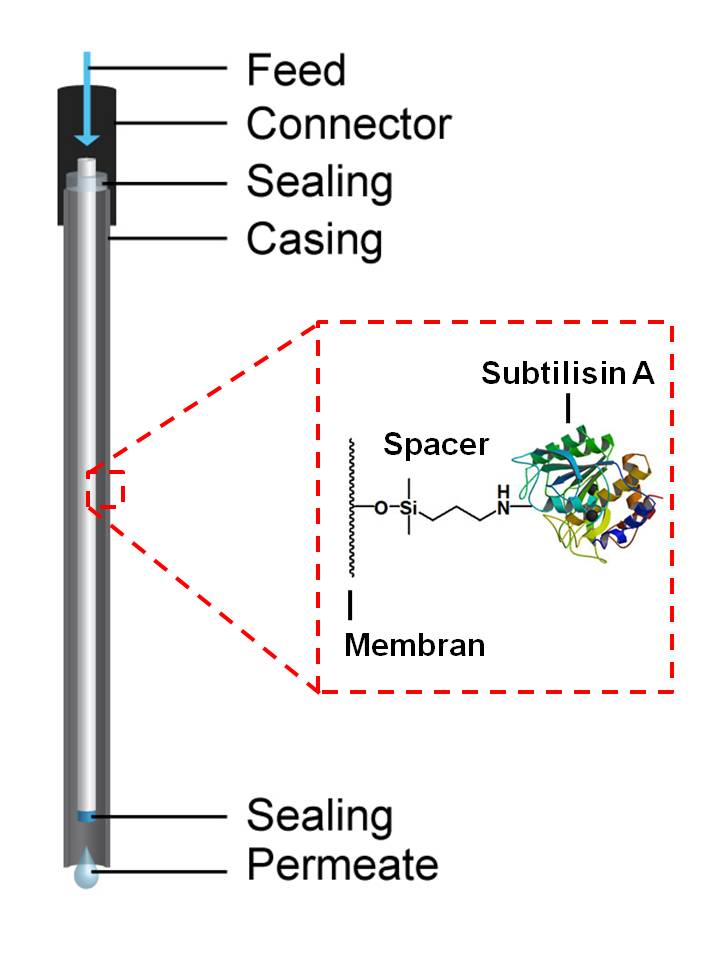Proteolytic ceramic capillary membranes for the preparative production of bioactive peptides
Peptides belong to one of the most efficient class of substances in all living organisms. They have a significant impact on numerous key positions concerning the human metabolism and its regulation. By the daily uptake of proteins the peptides are produced by enzymatic digestion and resorbed in the gastrointestinal tract of the human body. The functions of this special group of socalled “bioactive” peptides are strongly exceeded compared to the initial protein-containing nutrients. They act antimicrobial, immune system regulating, antioxidative, antihypertensive and exhibit cholesterol-level reducing properties. Despite this fact a major part of the bioactive peptides and their protein sources has not been systematically identified and characterized yet. At the same time many different bioactive peptides can be generated using one protein source and the entirety of the bioactive peptides is called “proteolysome”. Until now, a systematic investigation was only carried out for milk proteins and derived peptides thereof. Consequently, only the proteolysome for a small amount of nutrient-relevant proteins is known. Neither large-scale, enzymatic digestion nor chemical total hydrolysis of proteins is proved to be adequate for the production of defined peptide mixtures so far. These techniques are usually based on batch processes, thus making a continuous production of a specific peptide with bioactive properties impossible. The present research project starts at this point where a continuous enzymatic production of peptides will be fundamentally investigated. Consequently, a systematic mapping of the proteolysome (“peptide fingerprint“) of the most important nutrient proteins will be possible for the first time. Based on the digestive tract capillary membrane reactors are applied for the production of the peptides and different proteases, especially digestive enzymes, are actively immobilized onto the membranes. Capillary membranes made from ceramics are particularly suitable for these fundamental scientific investigations, because beside their chemical and mechanical stability they do not show any swelling behavior in liquid media, narrow pore size distributions are adjustable and high applied pressures result in no compression of the open-porous membrane structure. On the basis of a feasibility study it was successfully demonstrated that protease-functionalized (subtilisin A) capillary membranes can enzymatically hydrolyze a model protein (bovine serum albumin) under continuous flow conditions and defined peptide fingerprints are obtained as a function of the applied flow rate. By further variation of the protease immobilization, protein source and reactor operating conditions, peptides are preparatively processed from peptide fingerprints and analyzed with regard to their bioactivity.
Contact : (Kroll) , since 03/2017: Maas , Hoog Antink



